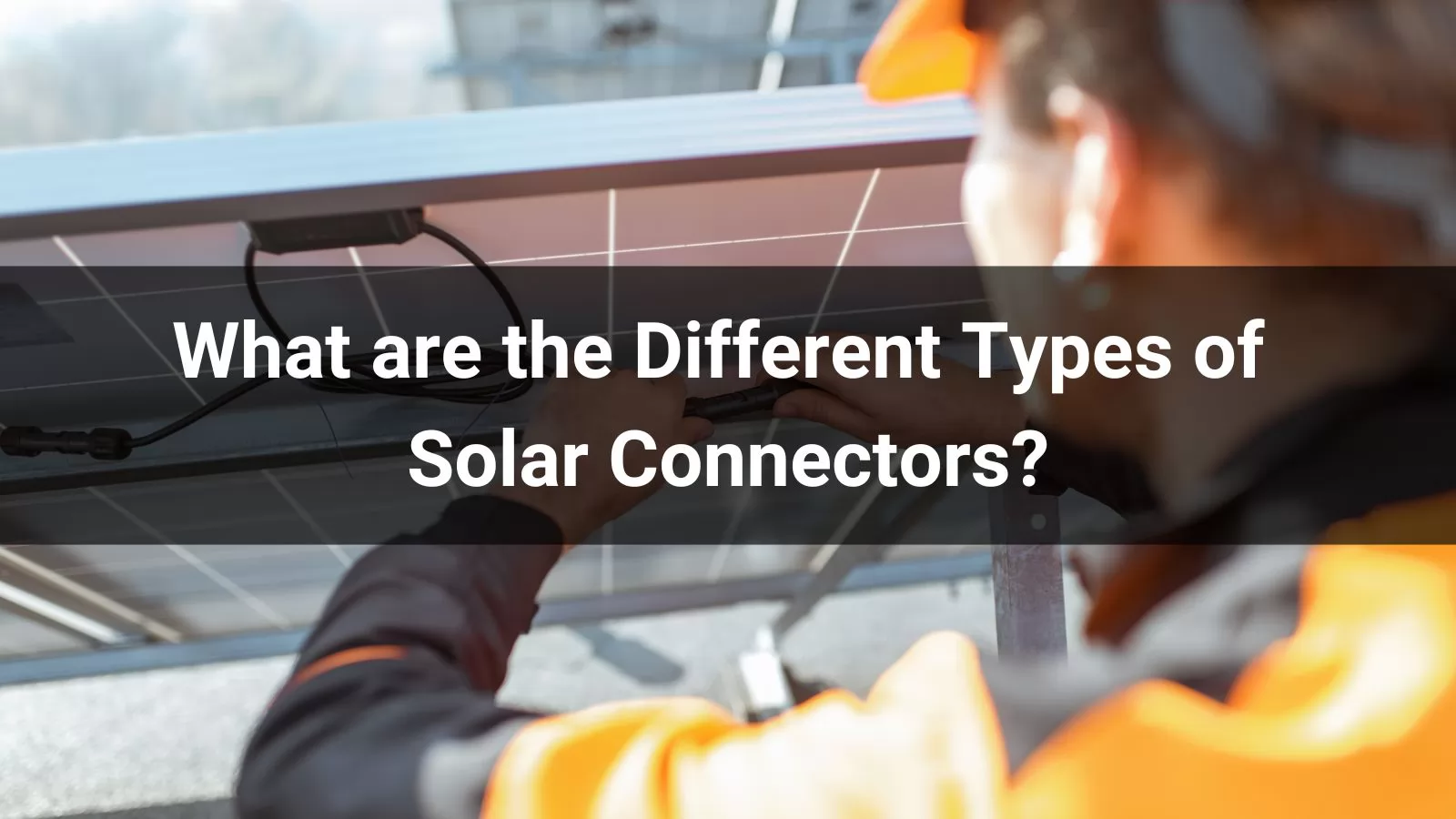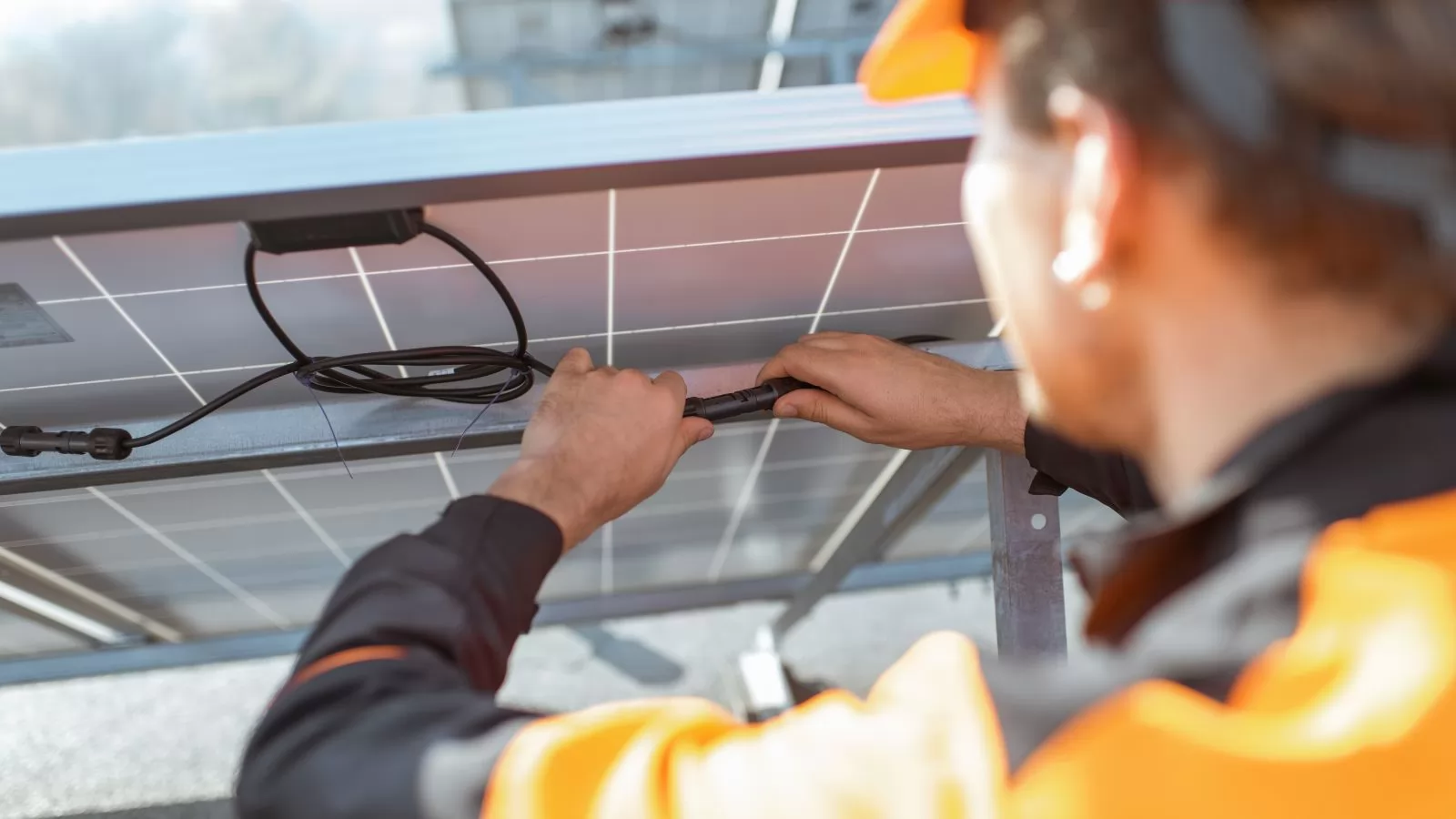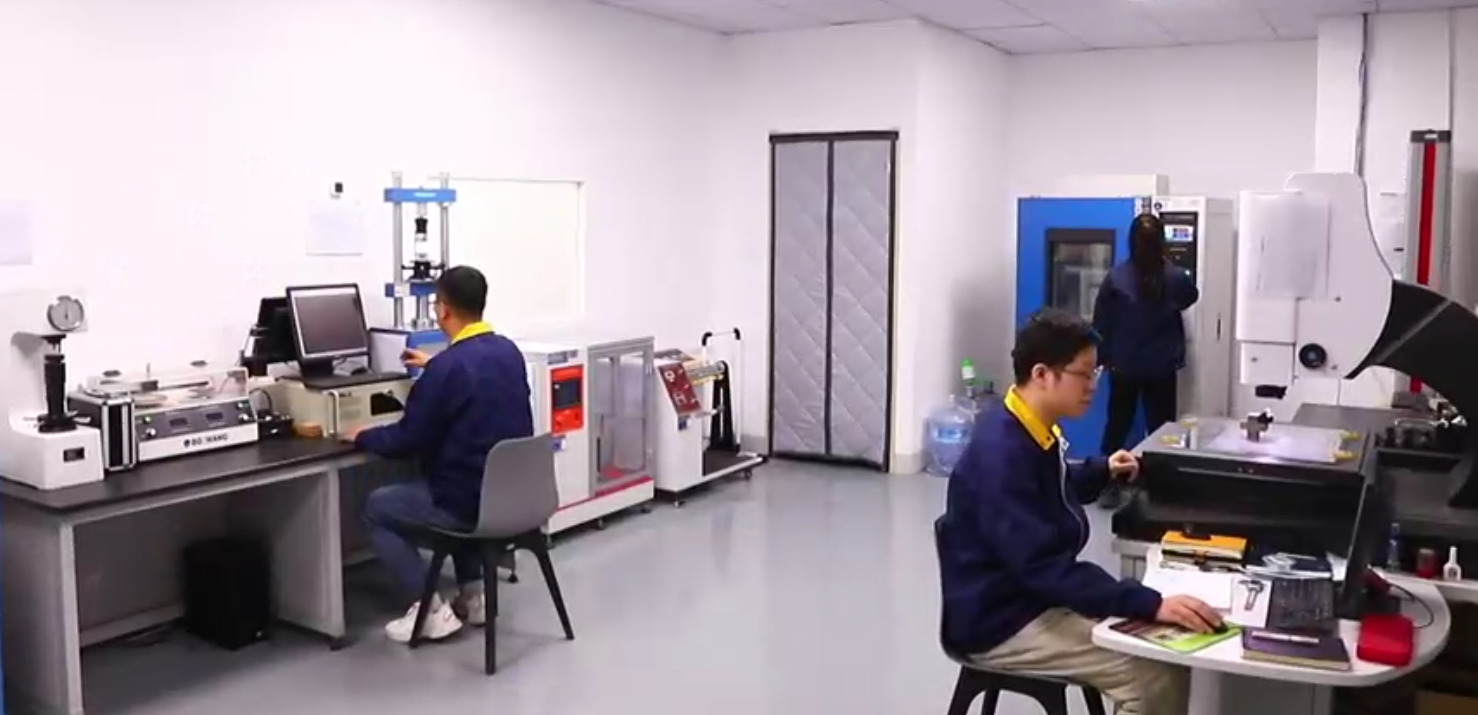
Solar energy has been booming in recent years as the world seeks cleaner, more sustainable energy sources. As a solar connector manufacturer, I often get asked about the components that make solar systems work efficiently. One of the most crucial parts of a solar energy system is the solar connector—yet it's often overlooked.
Solar connectors may seem small, but they play an essential role in ensuring the safe and efficient operation of solar panels. To shed light on this, I’ll walk you through the different types of solar connectors available, why they’re important, and the key differences between these connector types.
Let’s dive in.
What are Solar Connectors?
In simplest terms, solar connectors are devices that join solar panels to other components of a solar energy system, like inverters and batteries. Without these connectors, you can’t transfer the electricity generated by solar panels to power your home or business. They are engineered to handle high voltages and withstand tough environmental conditions, making them critical to the overall durability of a solar system.
Solar connectors generally consist of a male and female component, which connect cables in a way that ensures electricity flows smoothly and safely. They’re designed to be weather-resistant, durable, and easy to install, making them indispensable to any solar energy setup.
Types of Solar Connectors
Now, let’s break down the most commonly used solar connectors. Each type has unique properties, and choosing the right one depends on your solar installation's requirements. Below are the major types of solar connectors you’ll come across:
1. MC4 Connectors
MC4 connectors are arguably the most popular connectors in the solar industry today. The "MC" in MC4 stands for “Multi-Contact,” and the number "4" refers to the 4-millimeter contact pin inside the connector. These connectors have become a standard for most residential and commercial solar systems because they are easy to install, UV resistant, and waterproof.
Here’s why MC4 connectors are the industry favorite:
-
High Current Capacity: They can handle up to 30A of current, making them ideal for high-power solar setups.
-
IP67 Protection: This means they are dust-tight and protected against water, making them perfect for outdoor use.
-
Safety Locking Mechanism: This ensures a secure connection and reduces the risk of accidental disconnections.
-
Because of their reliability and ease of use, MC4 connectors are the go-to option for most solar installations.
2. MC3 Connectors
Before the rise of MC4 connectors, MC3 connectors were widely used in solar systems. While they are still found in some older installations, they’ve been largely phased out due to safety concerns.
MC3 connectors lack the locking mechanism that MC4 connectors provide, making them less secure. They are not as robust in terms of waterproofing and protection against dust, which is critical for outdoor solar installations.
For new solar systems, it’s recommended to opt for MC4 connectors instead of MC3, but it’s good to know about them in case you come across older systems that still use these.
3. H4 Connectors
Another popular type of connector in the solar industry is the H4 connector. These connectors are often considered an upgrade to MC4 connectors, offering a wider range of voltage compatibility and improved durability.
Key features of H4 connectors:
-
UL Certified: This means they meet strict safety standards for solar installations.
-
1200V DC Rating: H4 connectors are designed to handle high-voltage systems, making them suitable for both residential and commercial setups.
-
Interoperability: H4 connectors are designed to work with MC4 connectors, giving you more flexibility when designing your solar system.
-
If you’re looking for a durable, long-lasting connector, H4 connectors might be worth considering for your next project.
4. Amphenol H4 Connectors
The Amphenol H4 connectors are a variation of the standard H4 connector and have become popular for commercial-scale solar installations. These connectors are known for their rugged build and high efficiency in extreme weather conditions, making them a favorite for industrial solar farms.
Here’s why Amphenol H4 connectors stand out:
-
High-efficiency transfer of power, which is crucial in large solar installations.
-
Temperature resistant from -40°C to 90°C, making them ideal for a variety of climates.
-
If you're installing a large-scale solar system in a challenging environment, Amphenol H4 connectors are worth a closer look.
5. Tyco Solarlok Connectors
Tyco Solarlok connectors are another well-known brand of solar connectors. They are particularly appreciated for their easy installation process and flexibility in harsh environments. They come equipped with robust housing to protect against moisture and dust, similar to the MC4 connectors.
Features of Tyco Solarlok connectors:
-
Tool-less Installation: Reduces the need for specialized tools, making it user-friendly for quick installations.
-
Strong Seal: Ensures long-term durability and safety in outdoor settings.
-
These connectors are ideal if you’re looking for something straightforward but durable for both residential and smaller commercial systems.
Why Are Connectors Important For Solar Panels?
Now that we’ve covered the different types of solar connectors, let’s address why they are so crucial for your solar system.
1. Ensure Safe and Efficient Power Transfer
Solar connectors make sure that the electricity produced by your panels flows safely and efficiently. Faulty or low-quality connectors can lead to power loss, overheating, or even electrical fires, which is why choosing the right connector is essential.
2. Withstand Harsh Environmental Conditions
Solar panels are often installed outdoors, where they are exposed to extreme weather conditions—rain, snow, intense sunlight, etc. High-quality solar connectors are designed to be weather-resistant and durable, ensuring that your solar system can operate smoothly for years.
3. Easy Installation and Maintenance
Most modern solar connectors are designed for easy installation. They allow for quick connections between solar panels, inverters, and batteries, reducing labor costs and minimizing the risk of human error during installation. Furthermore, their standardized design ensures easy maintenance and replacement if necessary.
What Are the Differences Between Connector Types?
|
Connector Type |
Key Differences |
|
MC4 vs. MC3 |
-
MC4 connectors offer better safety with a locking mechanism, ensuring a secure connection.
-
MC3 connectors do not have a locking feature, making them less secure.
-
MC4 connectors are more resistant to environmental factors such as dust and water, while MC3 connectors have less protection.
|
|
MC4 vs. H4 |
-
MC4 connectors are widely used and popular for most solar installations.
-
H4 connectors offer higher voltage ratings and compatibility with both MC3 and MC4 systems.
-
H4 connectors are better suited for systems requiring higher loads and voltages.
|
|
Amphenol H4 vs. Standard H4 |
-
Amphenol H4 connectors are more rugged and designed for extreme environmental conditions.
-
Amphenol H4 connectors are typically preferred for large-scale or industrial installations.
-
Standard H4 connectors are suitable for general use but may not withstand harsh environments as well as Amphenol H4.
|
|
Tyco Solarlok vs. MC4 |
-
Tyco Solarlok connectors offer tool-less installation, making them user-friendly for quick setups.
-
MC4 connectors are more widely used and have better availability of spare parts and accessories.
-
MC4 connectors may offer more durability in certain situations, particularly where more robust connection security is needed.
|
Conclusion
Choosing the right solar connector is essential for the long-term success of your solar energy system. Each type of connector—whether it’s the widely popular MC4, the robust Amphenol H4, or the user-friendly Tyco Solarlok—has its pros and cons depending on your specific needs. Understanding these differences ensures you make the best choice, whether you’re building a residential solar system or a large commercial installation.
If you're in the market for reliable solar connectors, it’s crucial to pick a high-quality connector that matches your system’s specifications and environmental conditions. Feel free to reach out if you need help selecting the right solar connectors for your project.
After all, a solar system is only as good as its connectors!
.png)

.png)


.png)
.png)
.png)
.png)





